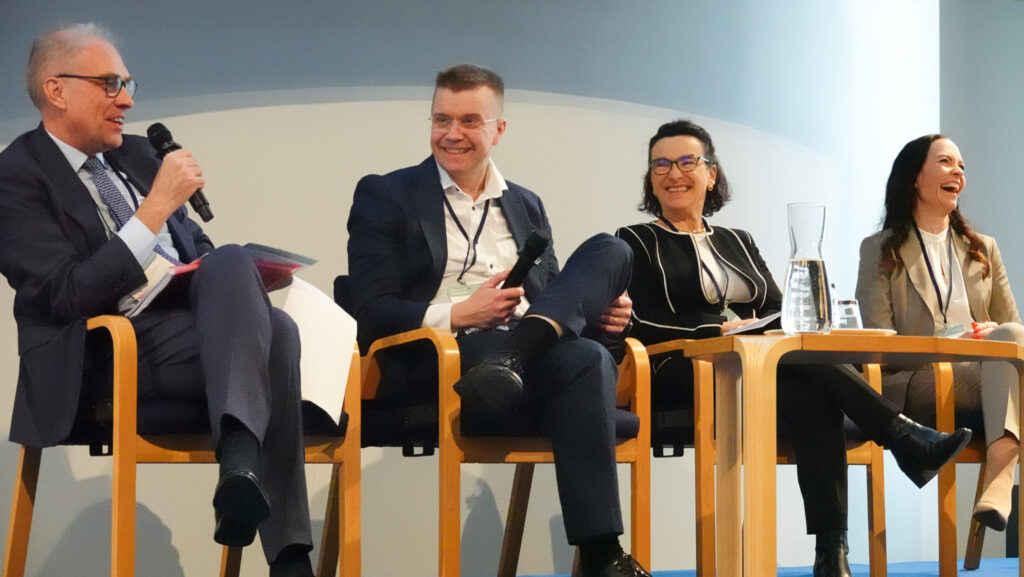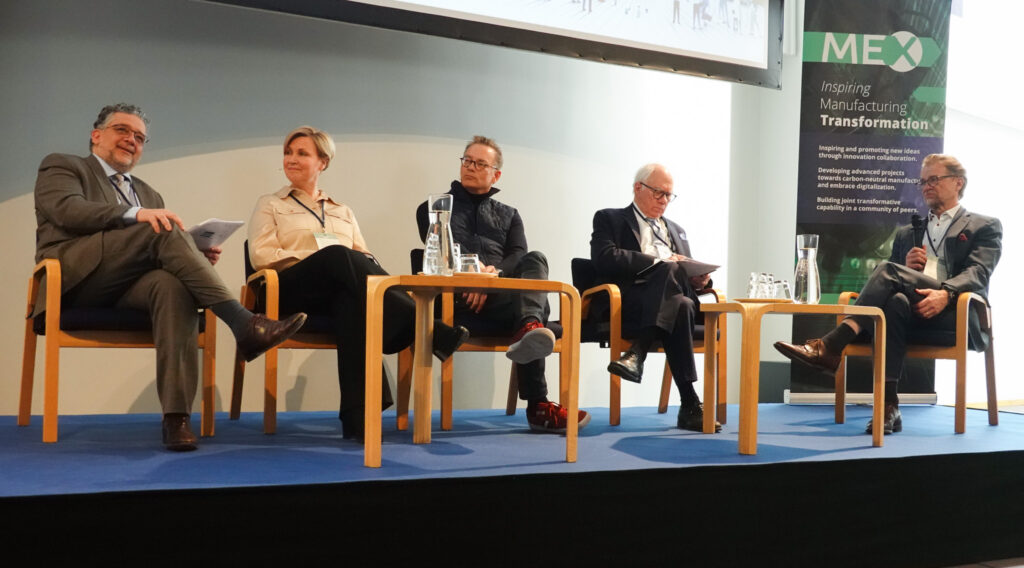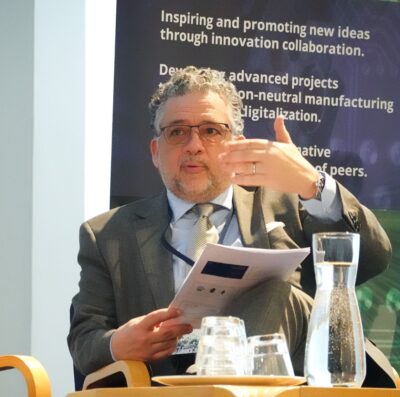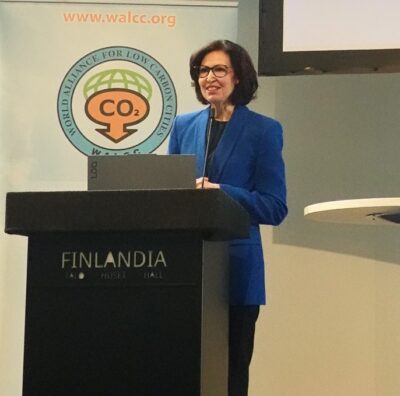Ecosystems as growth enablers
At the Excellence through Ecosystems event, Professor Michael G. Jacobides of London Business School shared experiences from both research and practice on how ecosystems can accelerate growth and stimulate creativity. Digitalization enables orchestrators to more flexibly mobilize partners with complementary skills when introducing new products and services. By pooling the resources of its partners, an ecosystem can address relevant customer needs and together create value greater than any of the players individually. The continuously evolving competitive landscape requires ecosystems also to innovate and adapt. Nonetheless, the foundation for staying competitive is based on the unique complementary capabilities of the ecosystem partners.
Strengthening innovation capabilities
The panel discussions at the Finlandia Hall illustrated how ecosystems integrate the interests of the public and private sectors. In addition, there is often an important role for research when ecosystems grow. This is illustrated by Kempower, whose interests have been well aligned with the City of Lahti and LUT University. In the case of semiconductors, Finland has a strong position as a research hub. Tampere University is part of an EU consortium that brings together a comprehensive range of tools and services to support semiconductor chip development, encouraging companies to join the collaboration and lowering the threshold for IT and electronics companies to design their own chips.

Company panel from left to right: Johan Wallin, Synocus; Simo Säynevirta, ABB; Christine George, Konecranes; Mervi Airaksinen, Microsoft Finland
Finland has gained international esteem for rapidly reducing fossil fuels in its electricity production, and, e.g., Microsoft will establish a leading data center region in Finland. This creates opportunities for using the data center’s waste heat in district heating. Here, Microsoft works closely with the City of Espoo and Fortum to form a springboard for innovation by supporting research and startups in integrating digital and physical solutions.
Microsoft wants to accelerate the generation of new AI business opportunities for Finland and is working closely with Aalto University to promote this aim. Konecranes and ABB are also actively exploring the opportunities to strengthen their own competitiveness with the use of AI. ABB’s recently launched, five-year, Business Finland funded Veturi project addresses another growth opportunity in the hydrogen economy, looking to create the world’s most competitive H2 technology development environment in Finland.
The discussion confirmed Teija Lahti-Nuuttila’s (Business Finland) insight that ecosystems play an important role when securing Finland’s innovation capability. Business Finland’s aim is to support international networking and encourage stronger collaboration between ecosystems. Boosted by cross-disciplinary research, this is expected to result in radical innovations in the interfaces of different industries.

Academic Panel from left to right: Micheal G. Jacobides, London Business School; Teresa Kemppi-Vasama, LUT University; Tero Ojanperä, Aalto University; Jorma Eloranta, Tampere University; Mikko Kosonen, Synocus
Co-creation excellence

Professor Micheal G. Jacobides, London Business School, engaged the participants into active discussions
Professor Jacobides also met with individual Finnish companies. The discussions with company executives revealed that Finland is very suitable for ecosystem development, given our strong culture of trust, which is a prerequisite for successful ecosystem collaboration. Yet successful ecosystems must also engage internationally, and here, Finnish ecosystems have room for improvement. To facilitate international expansion and scalability, the ecosystem must often complement its domestic resources with capabilities from abroad to realize its full potential. As ecosystem partners must be engaged around the common vision for the longer term, it is also important to enhance the external visibility of the ecosystem to ensure that the participants stay motivated.
An ecosystem should be able to learn and adapt. It is, therefore, crucial to have a structured process in selecting partners prepared to allow the ecosystem to morph along with evolving needs. Thus, ecosystems should focus on co-creation built on partnerships, aiming to share opportunities and risks when collaborating.
Aiming for Tiger Leaps
Synocus has embarked upon a project called Aiming for Tiger Leaps to share experiences and learnings among peers engaging in the development of innovation ecosystems and springboards. The different springboard initiatives have revealed a need for simultaneous emphasis on both shorter-term offering-related activities and longer-term innovation efforts. This balancing must ultimately be done by the leading companies engaged in the ecosystem, as they will have the upside of scaling up and commercializing the joint results from the innovation collaboration. At the same time, it is also hugely important to ensure the local anchoring of the ecosystem to ensure persistence and continuity. Here, universities and cities have a key role to play.

Teija Lahti-Nuuttila, Executive Director, Customers and Networks, Business Finland, opening the Excellence Through Ecosystems event at Finlandia Hall
Establishing internationally influential industrial hubs around Finnish competencies is one of the key objectives of the recently published industrial policy strategy. The strategy encourages exploiting opportunities offered by the clean transition, the bioeconomy, and the circular economy, and investing in logistics, infrastructure, and industrial hubs. The recent geopolitical turbulence has escalated the need for Finland to be more active internationally in forming the new industrial landscape under deglobalization. Here, Business Finland has an important role in catalyzing and promoting new co-creation initiatives across industrial sectors.
printable version of this newsletter
Contact
For more information and inquiries about the Aiming for Tiger Leaps initiative, please contact
Jussi Hulkkonen
jussi.hulkkonen@synocus.comNiklas Koski
niklas.koski@synocus.com